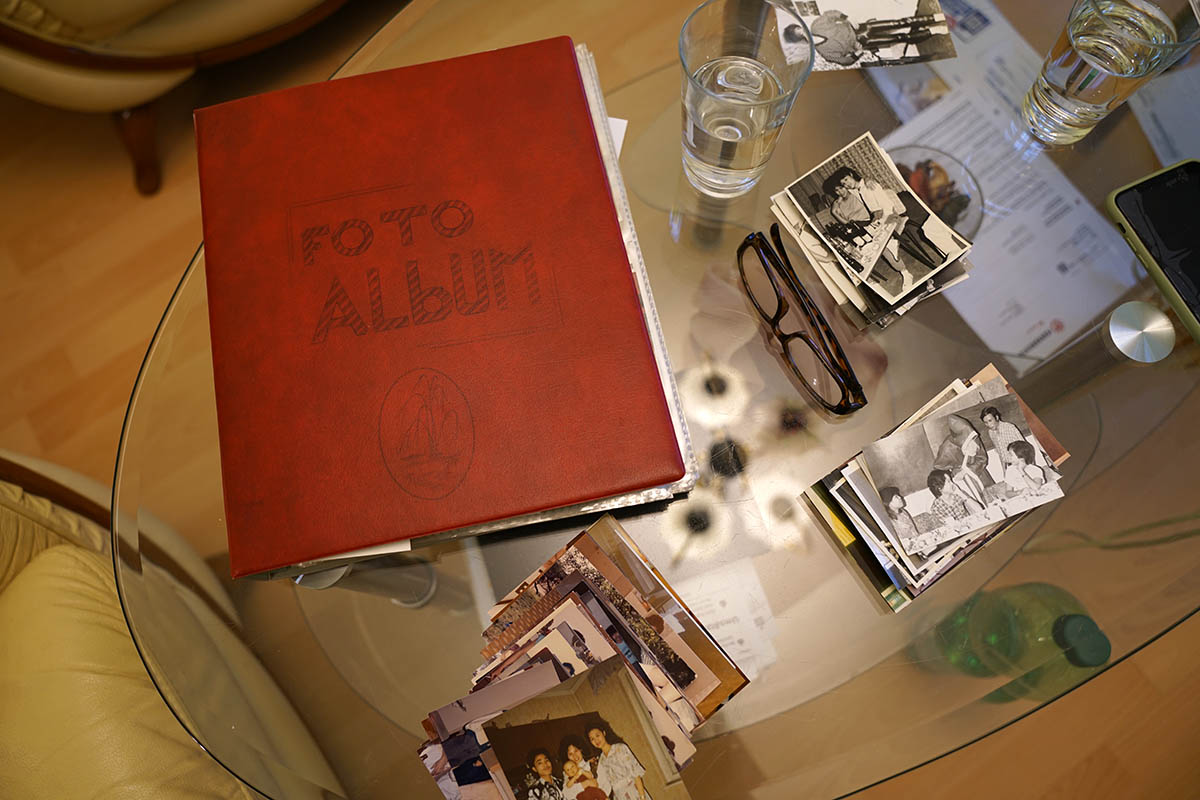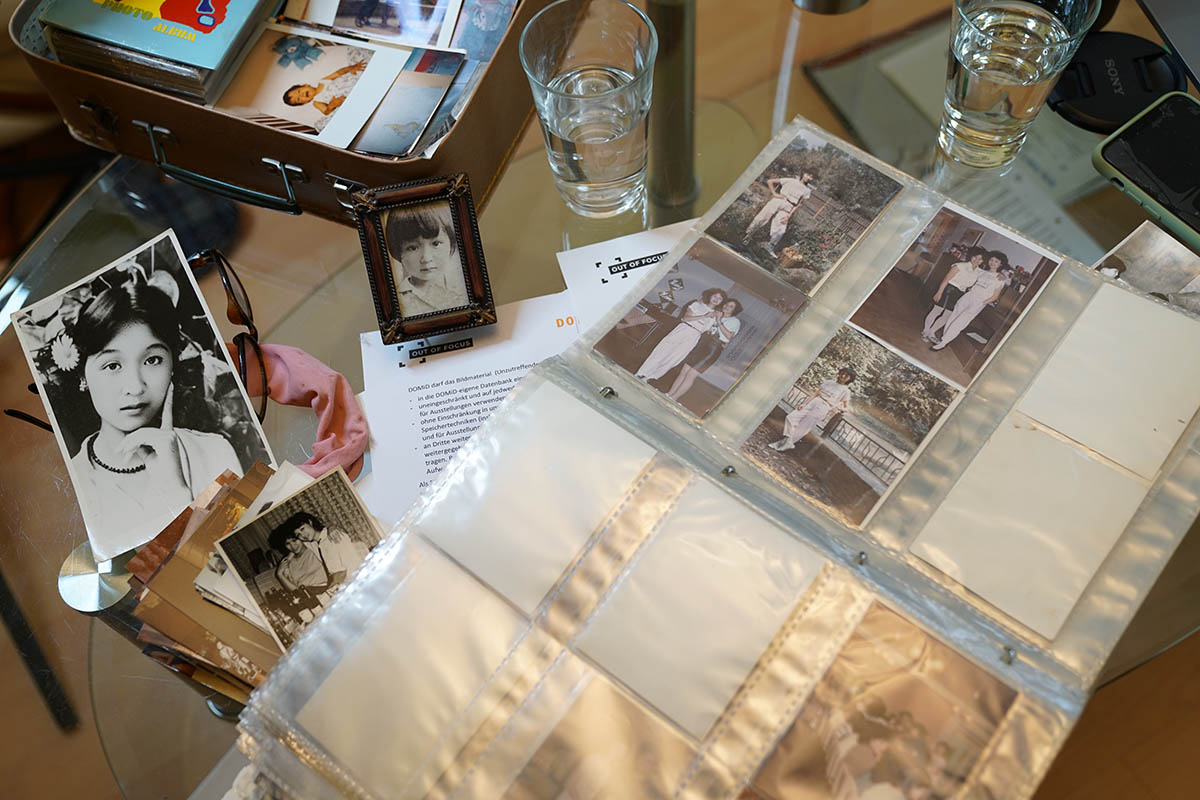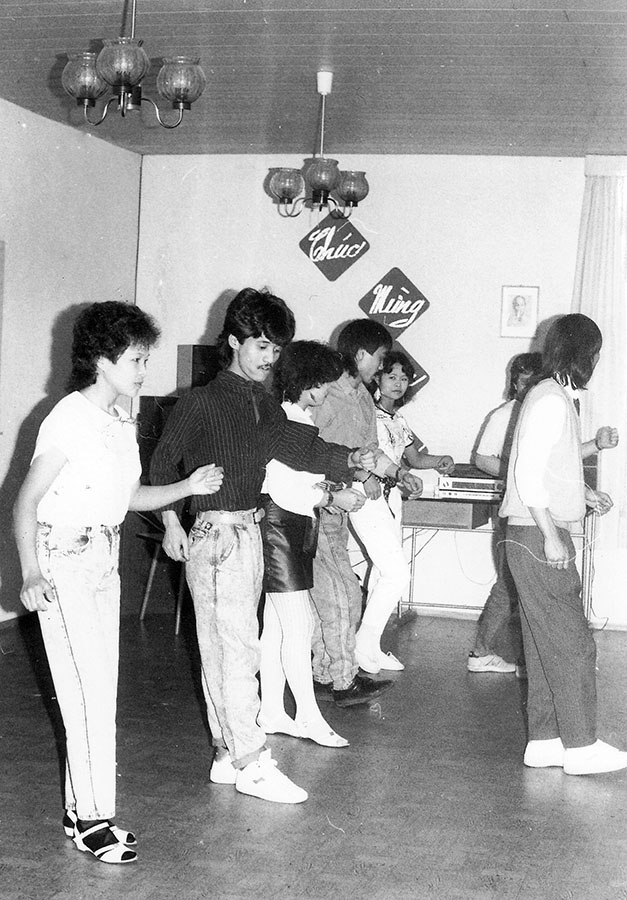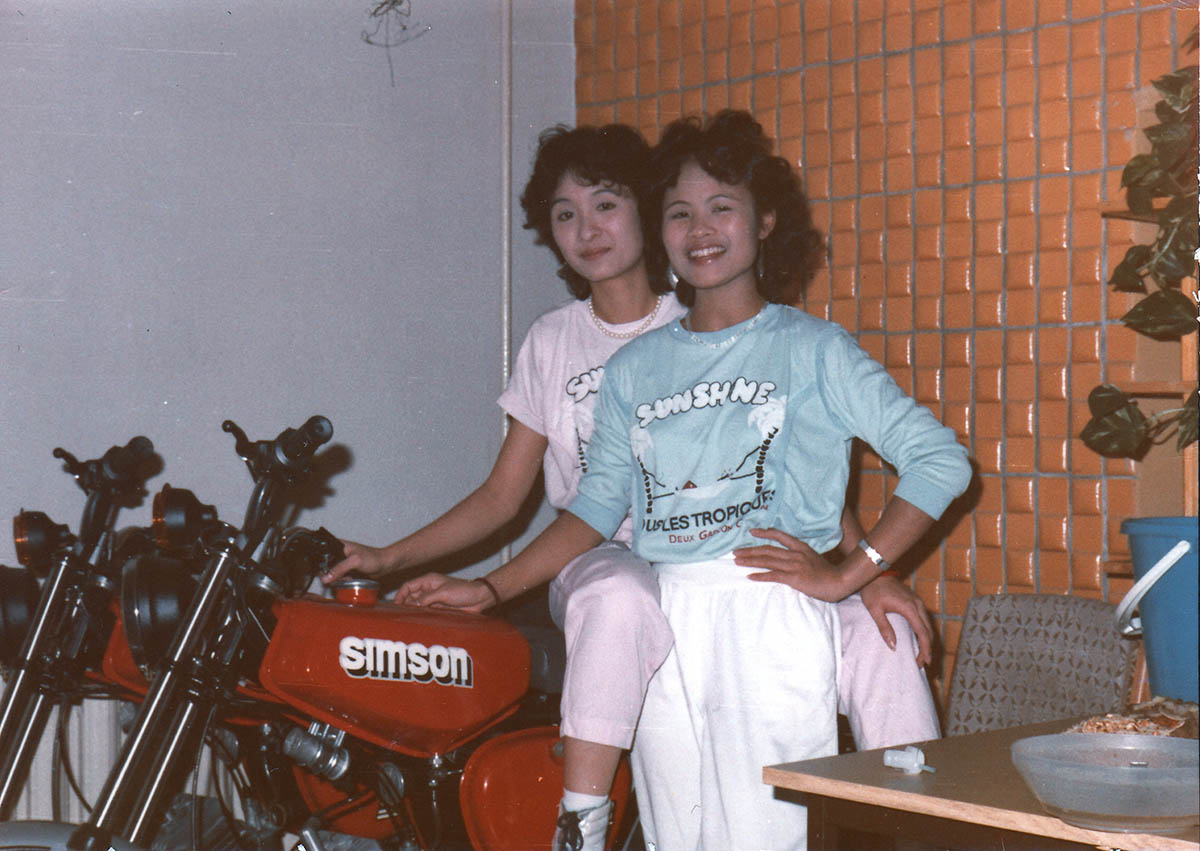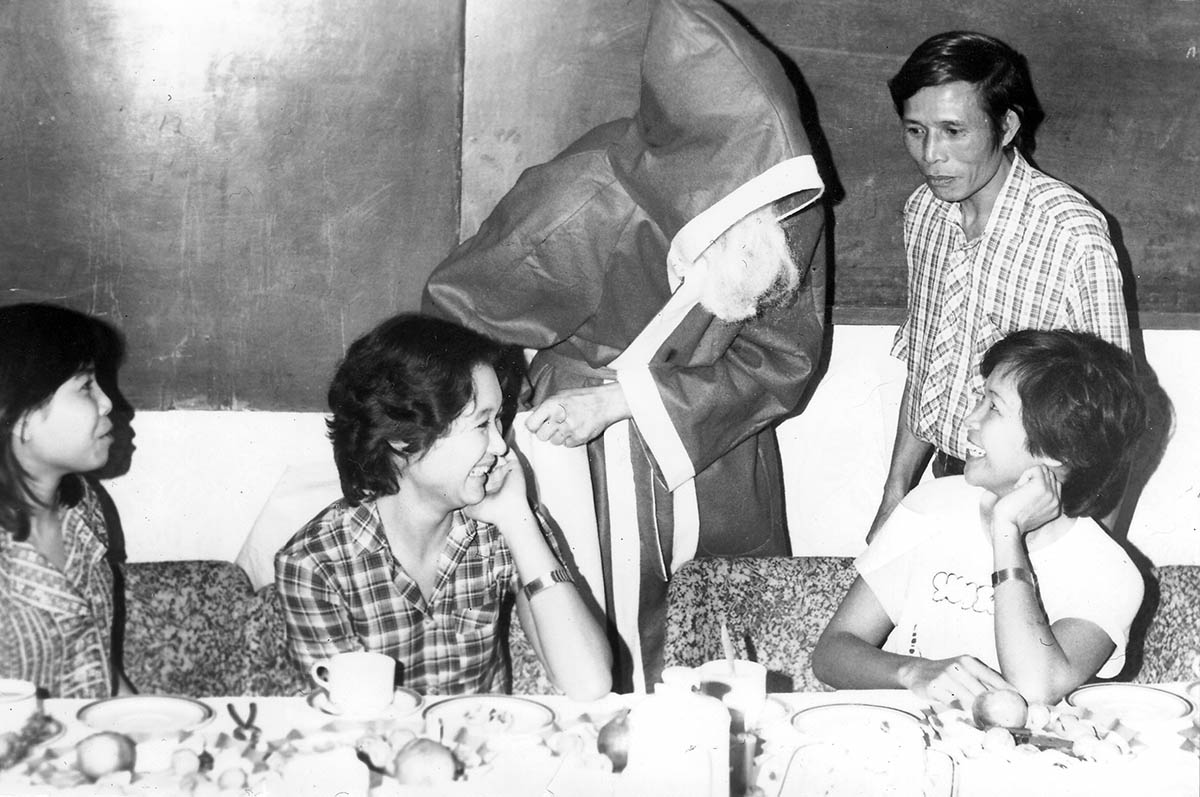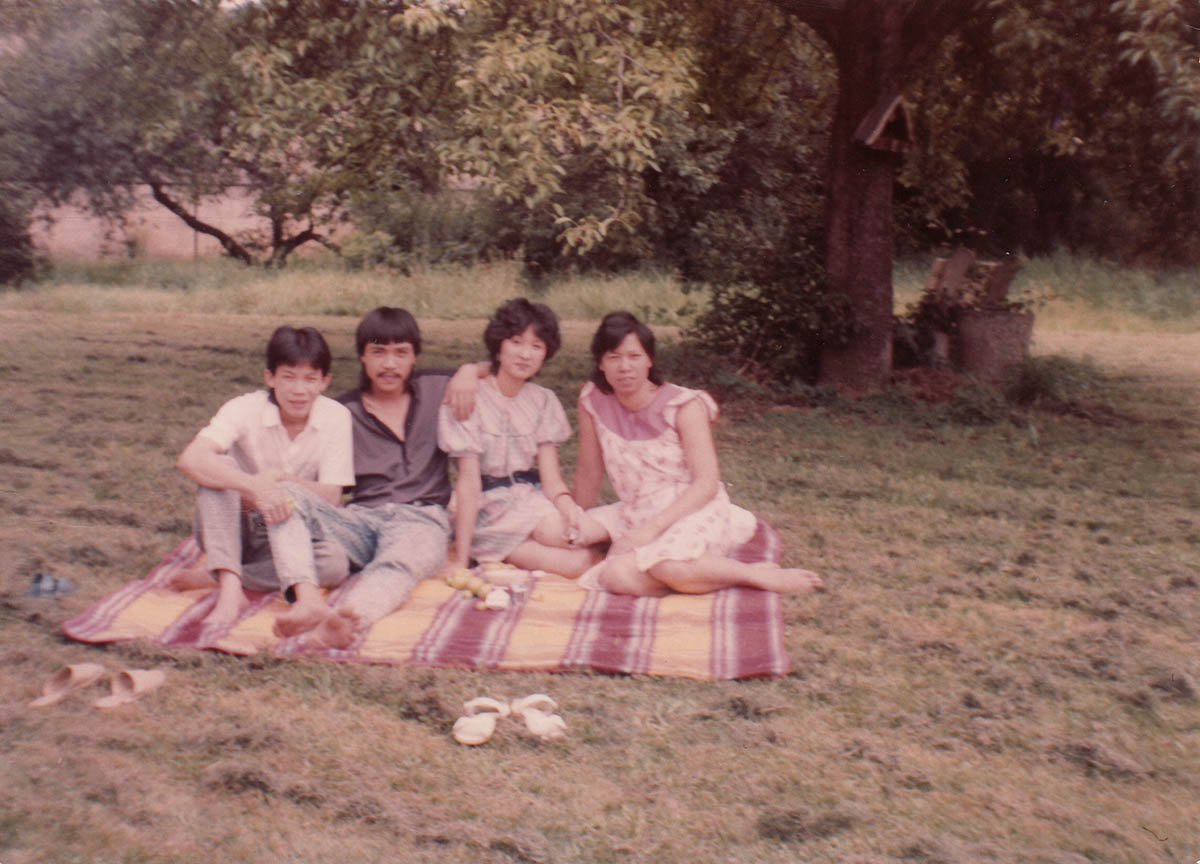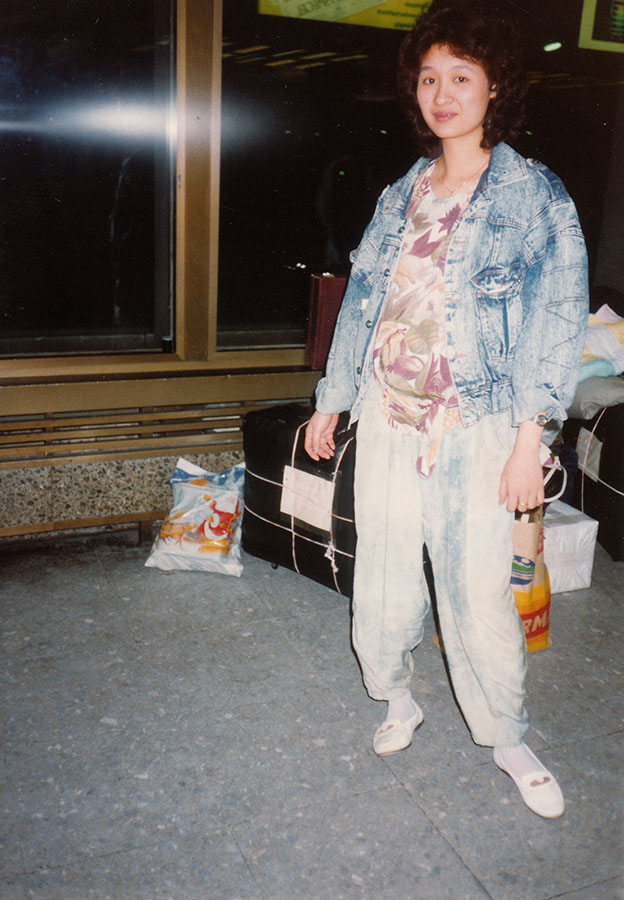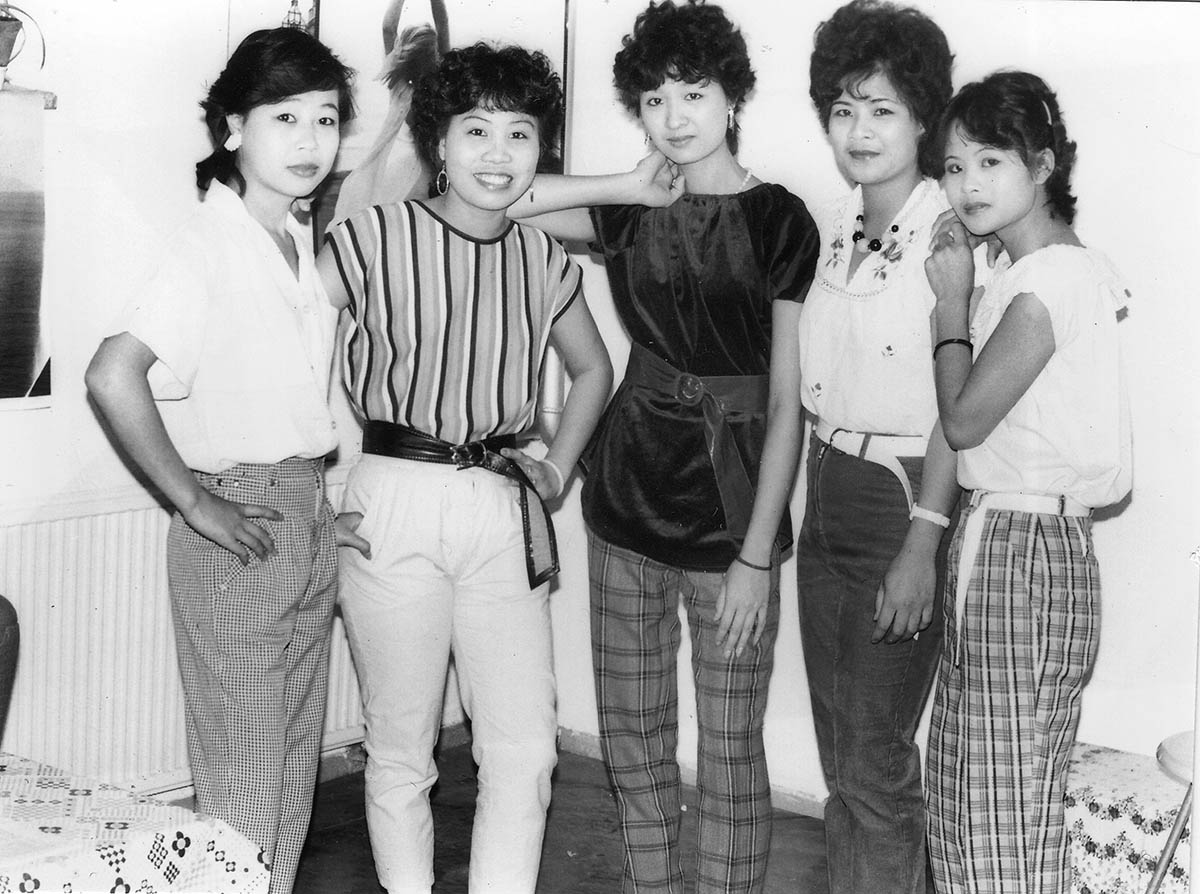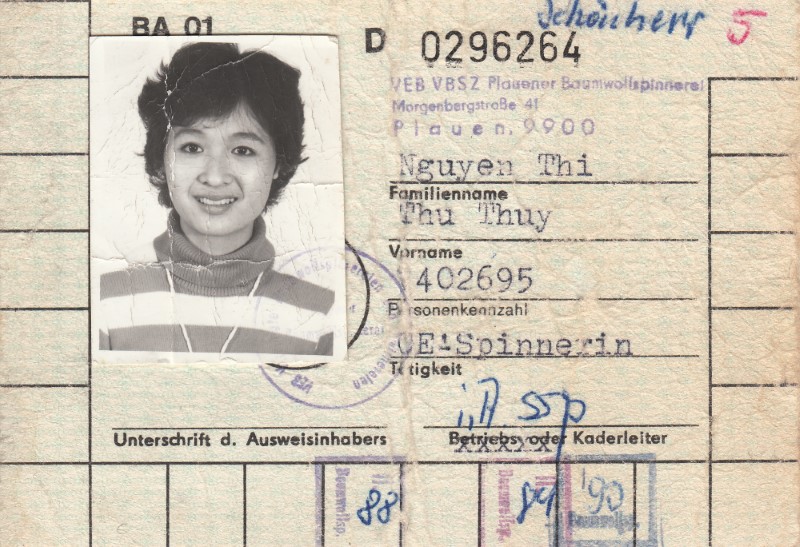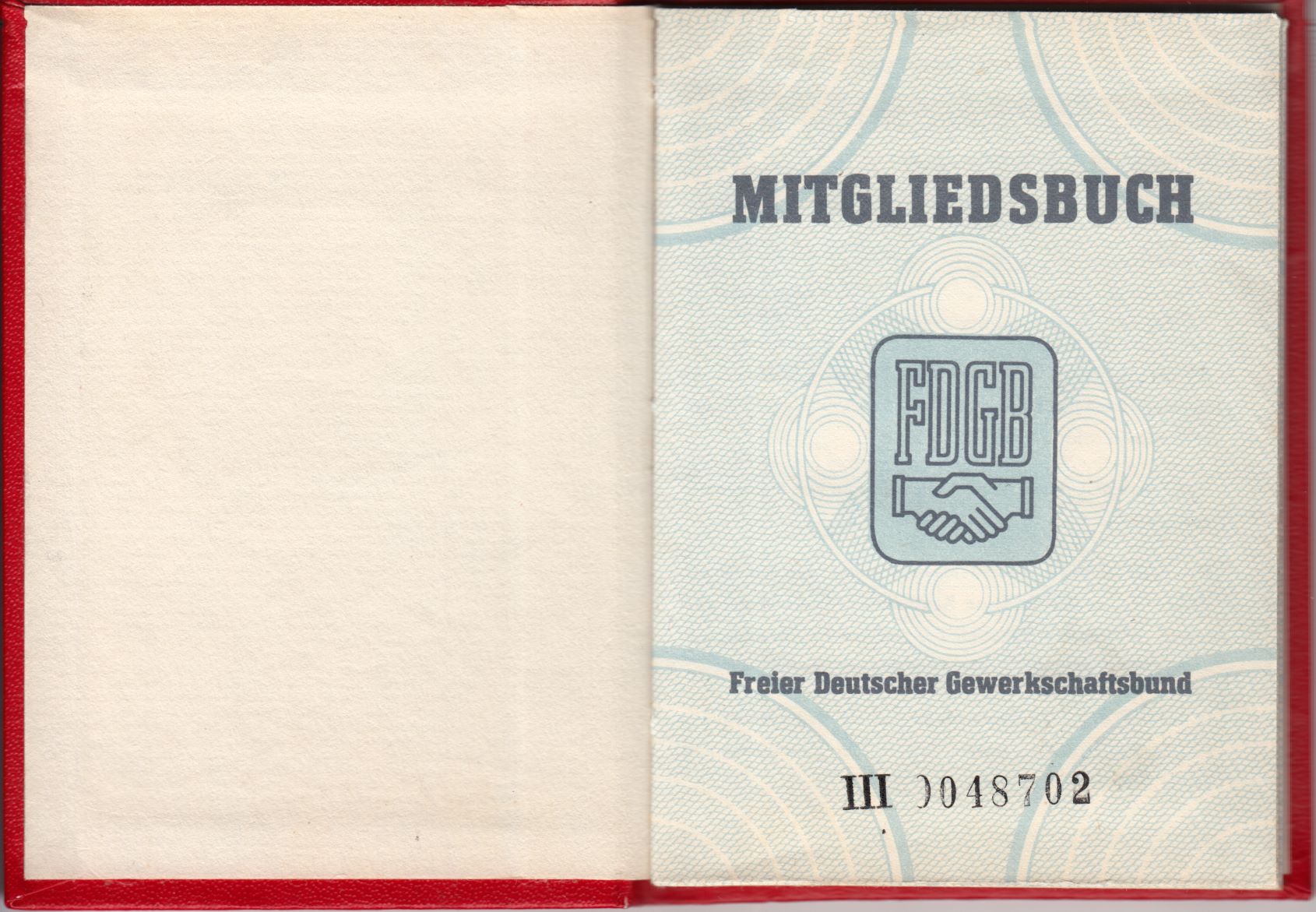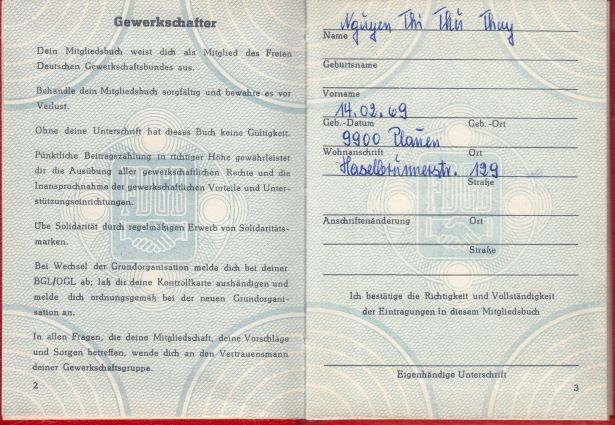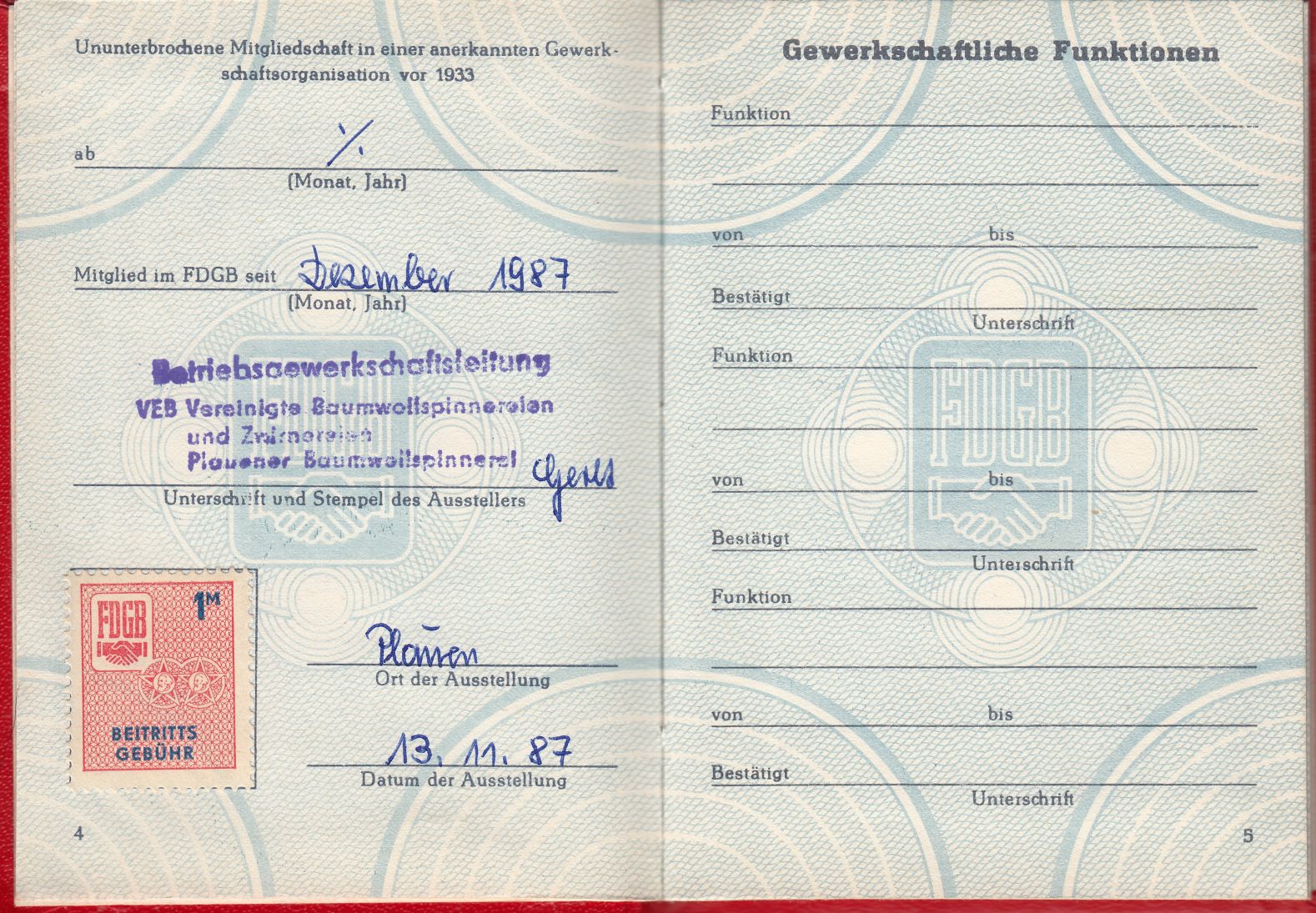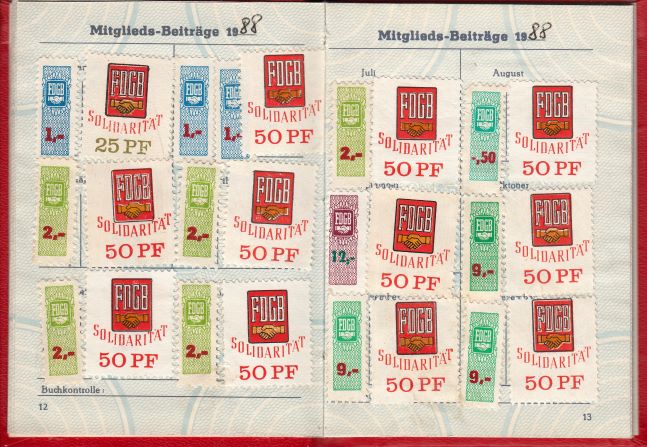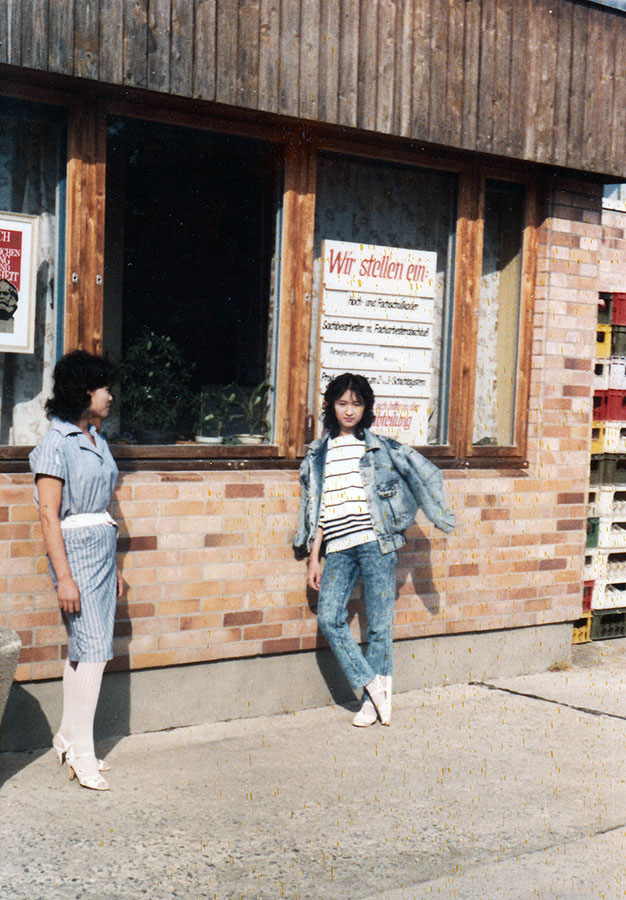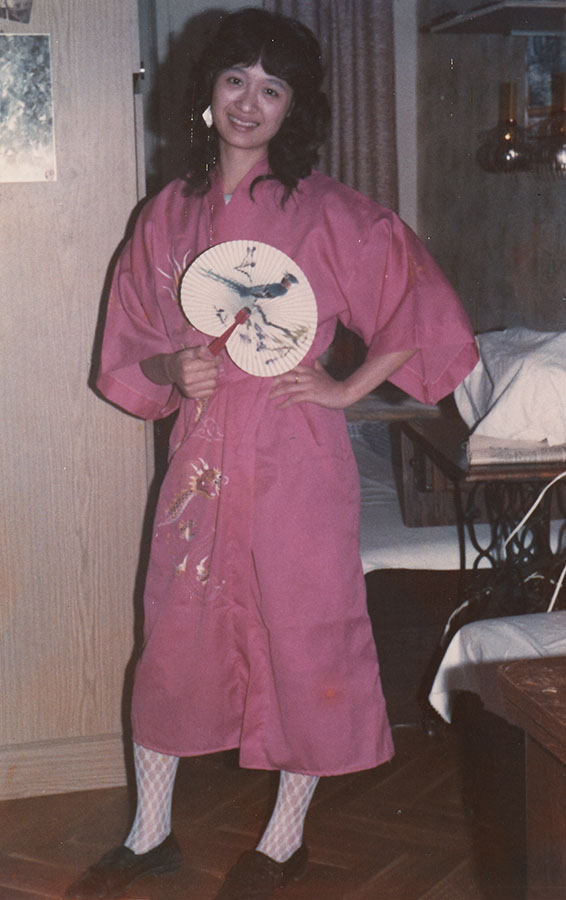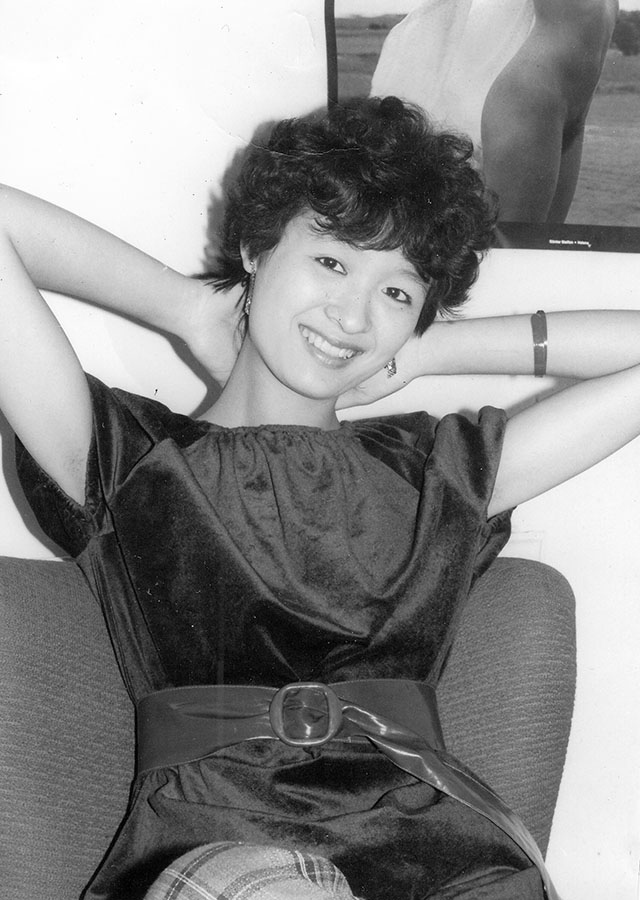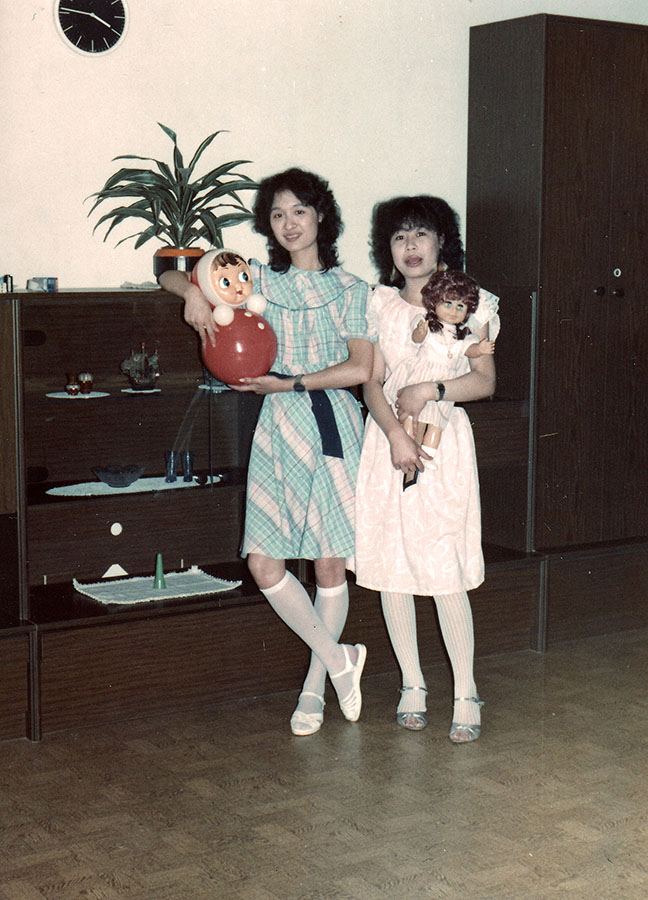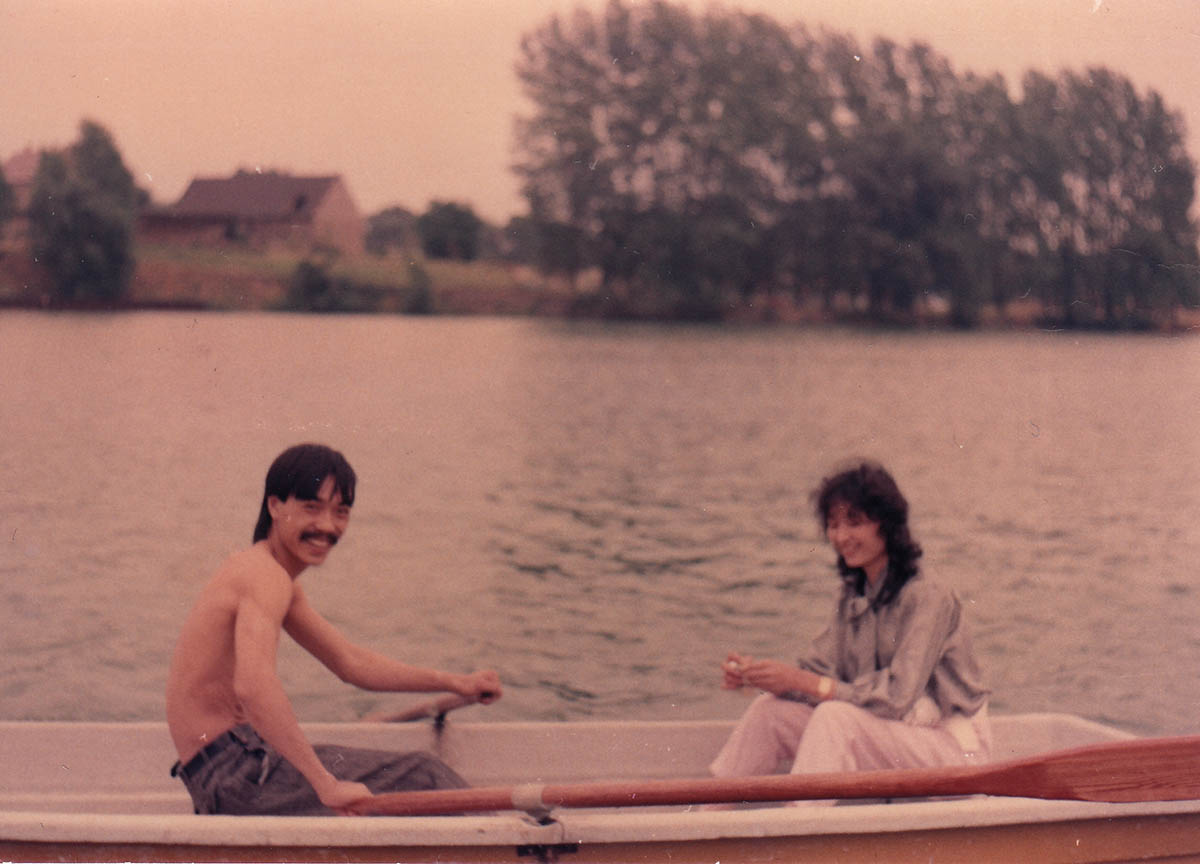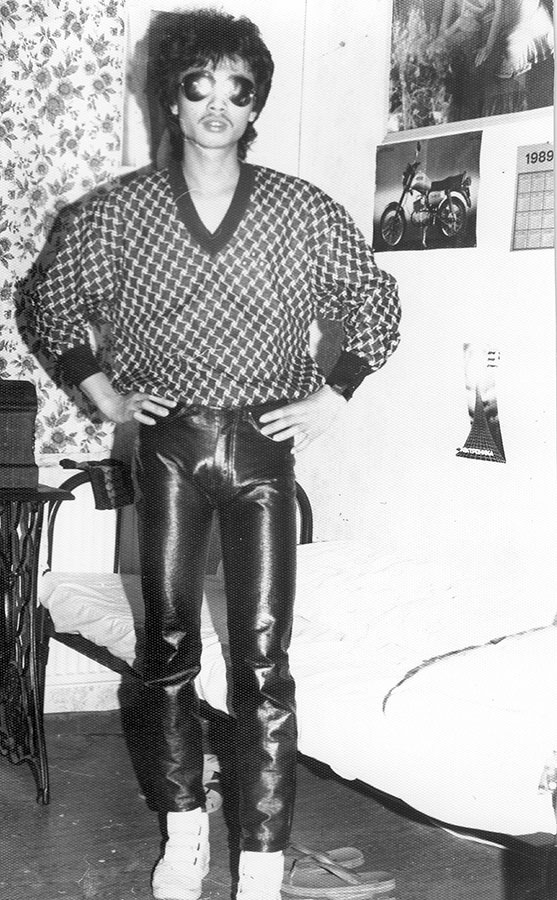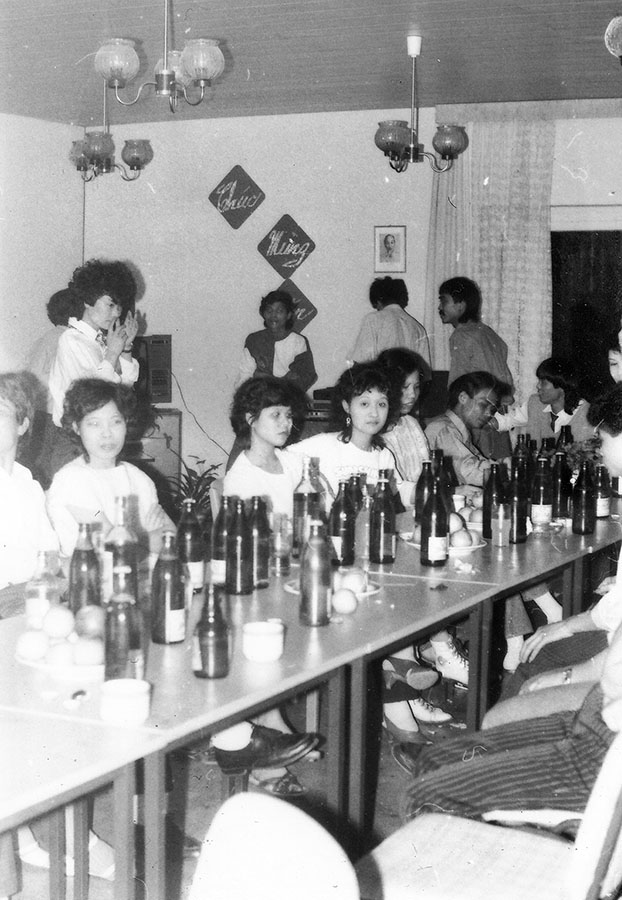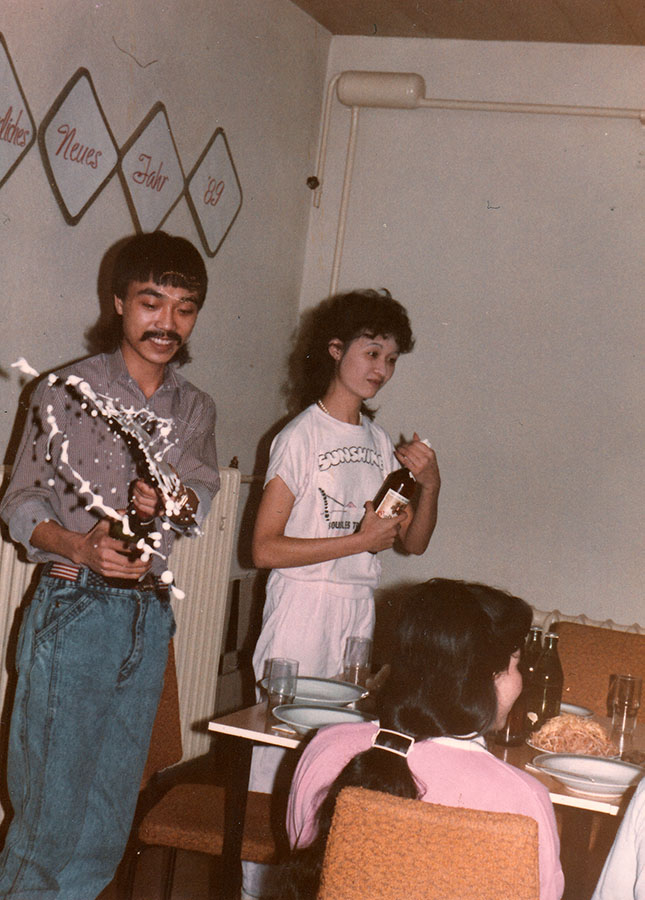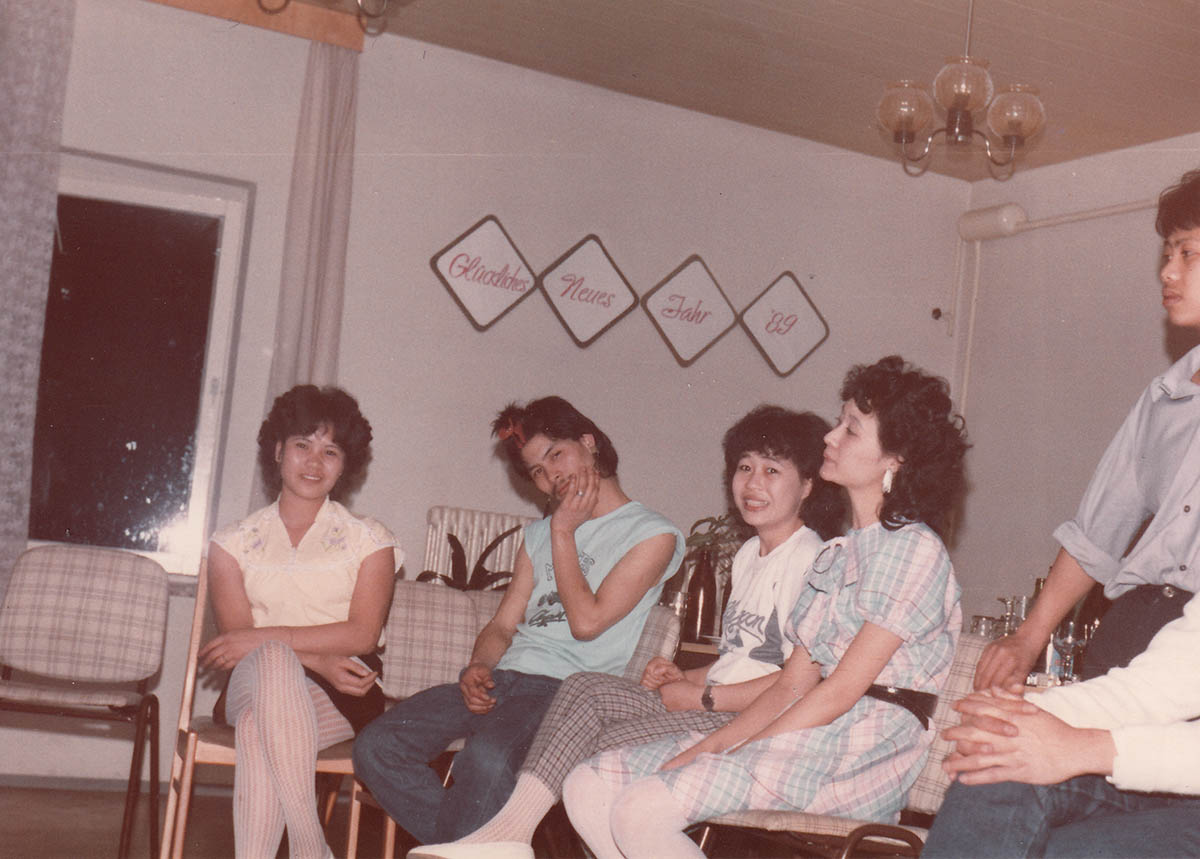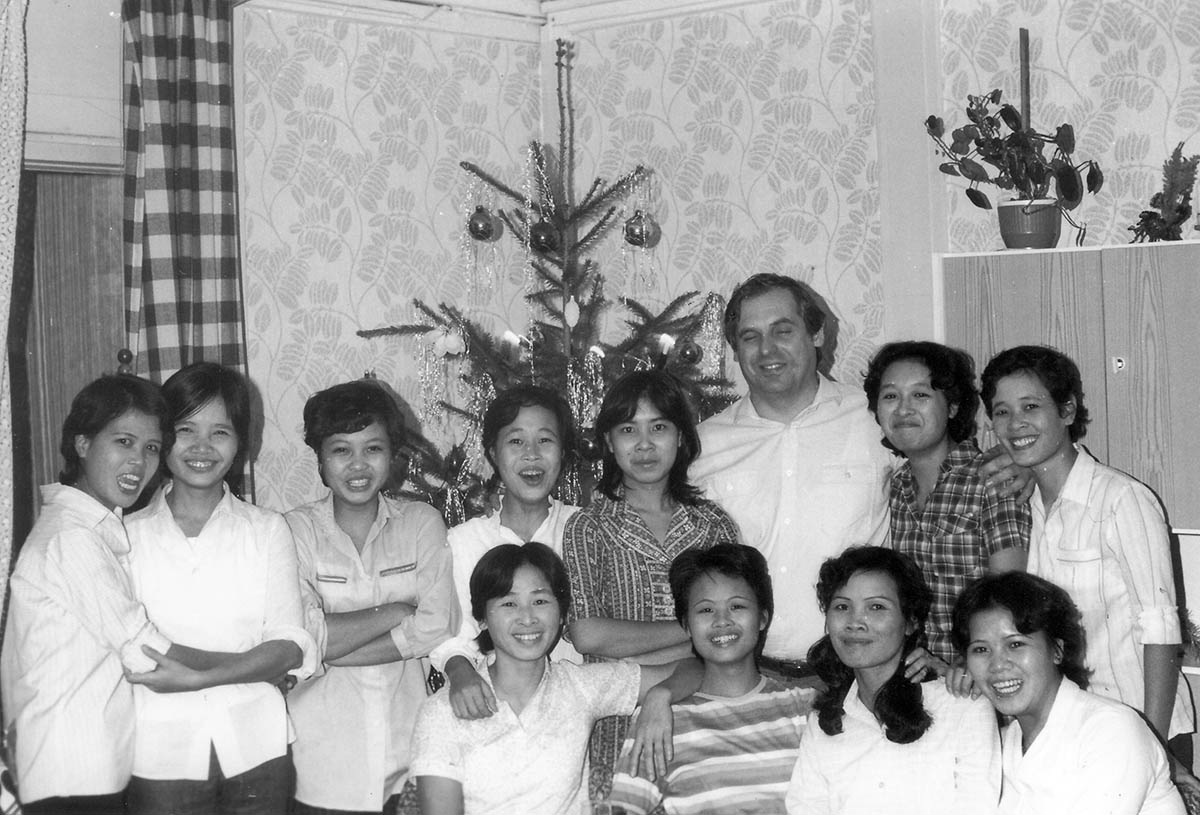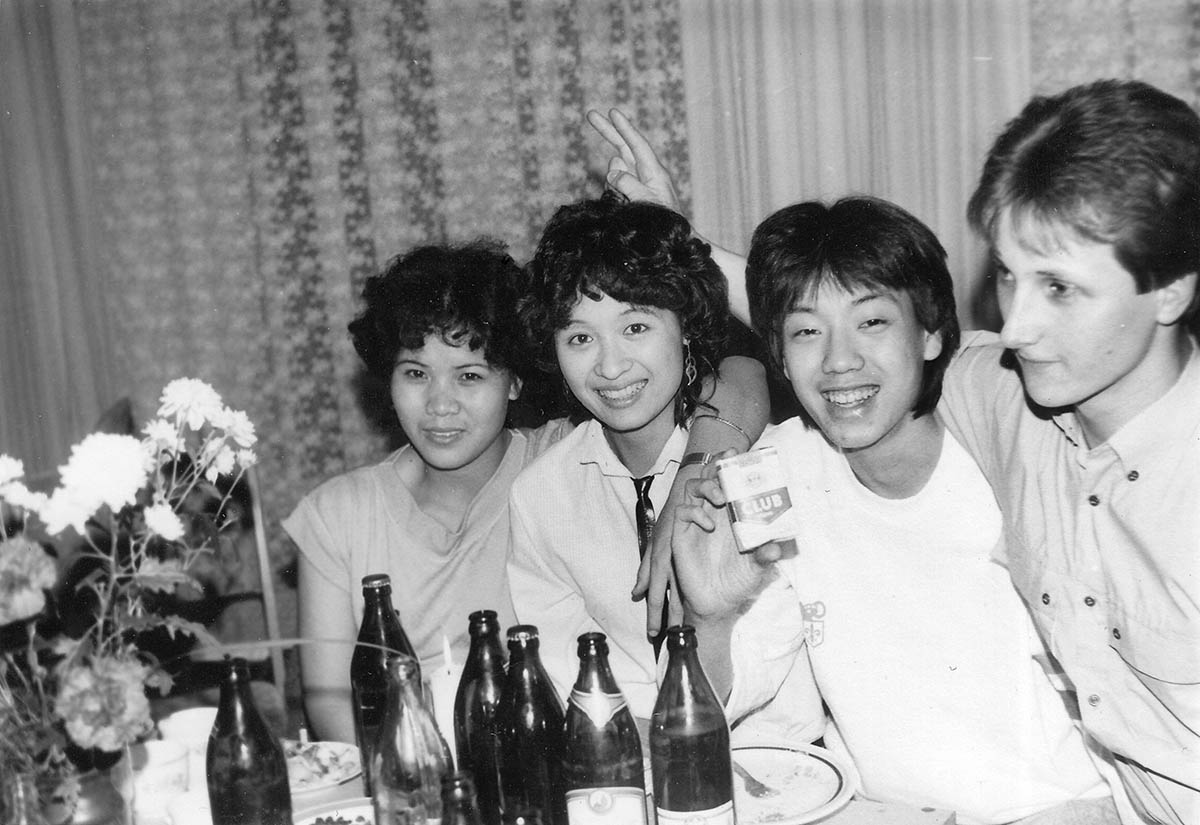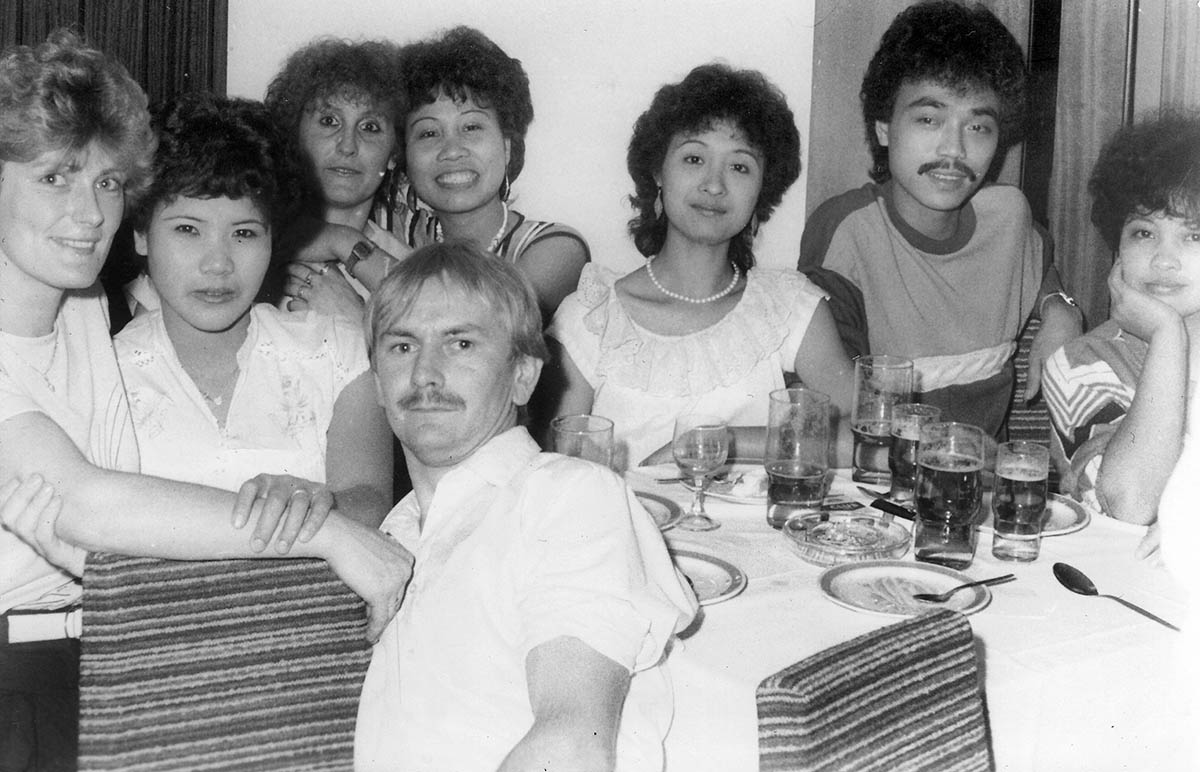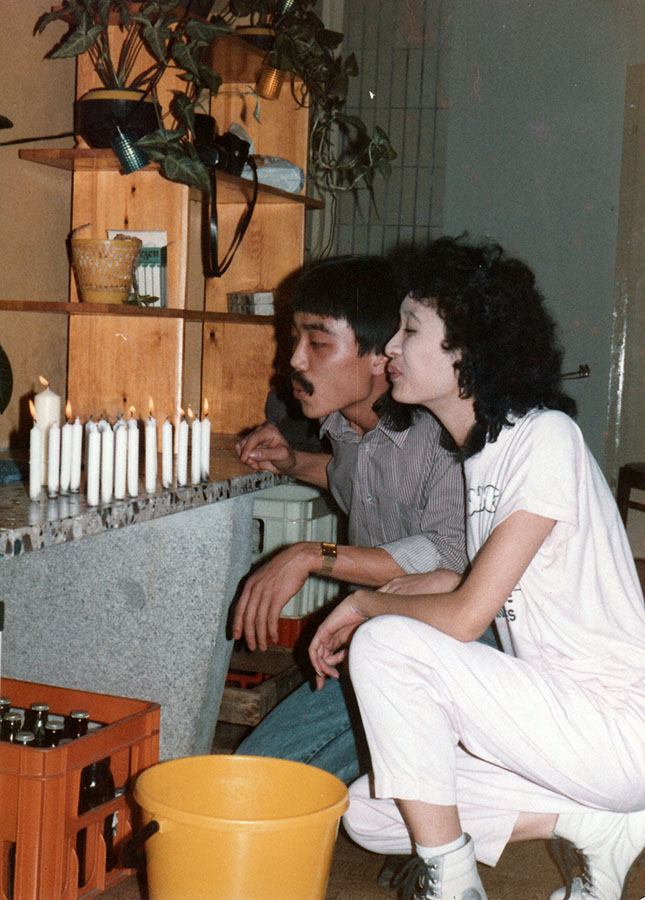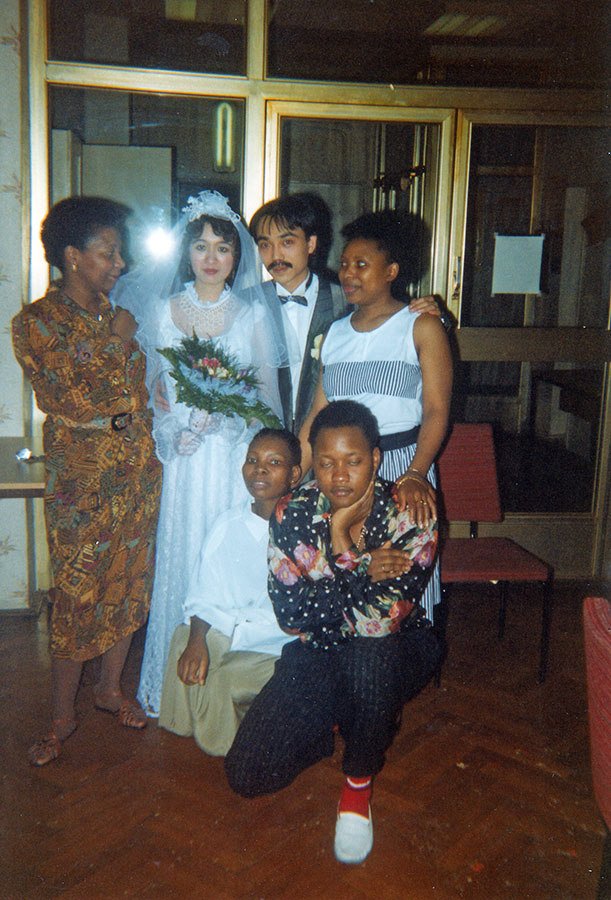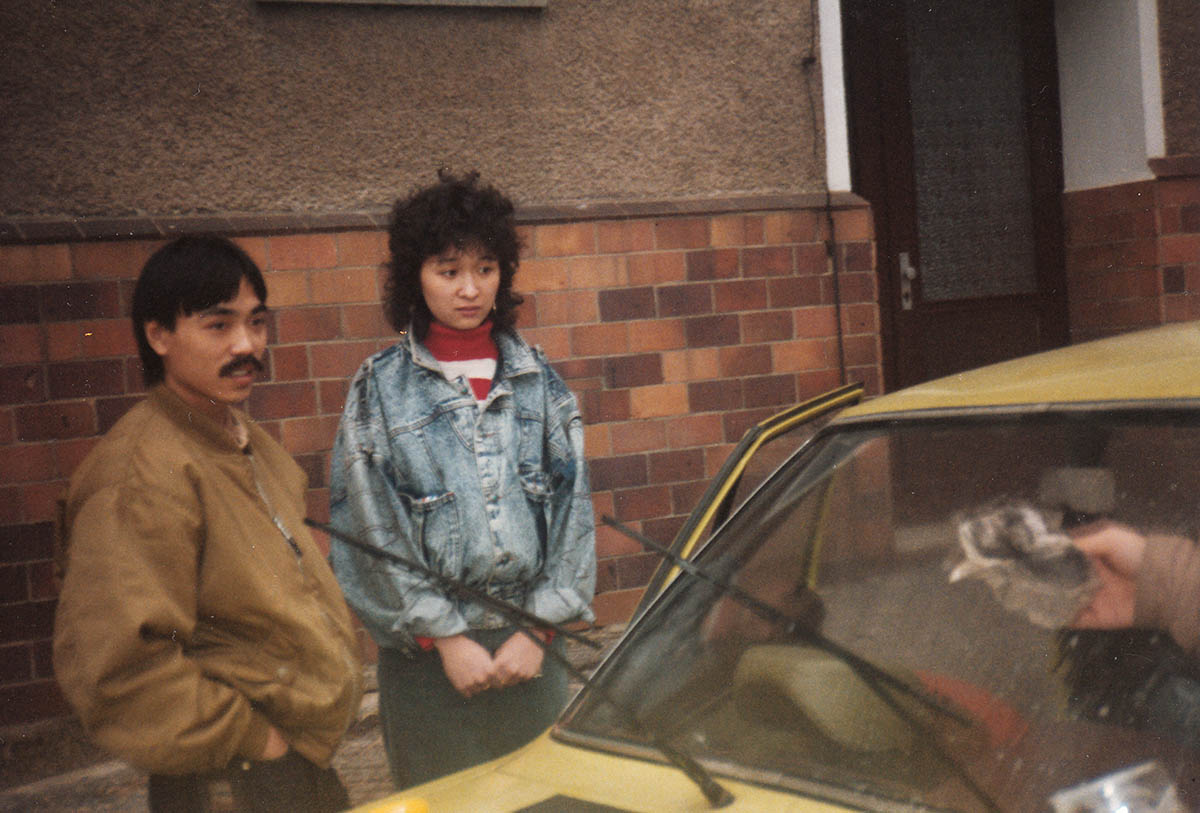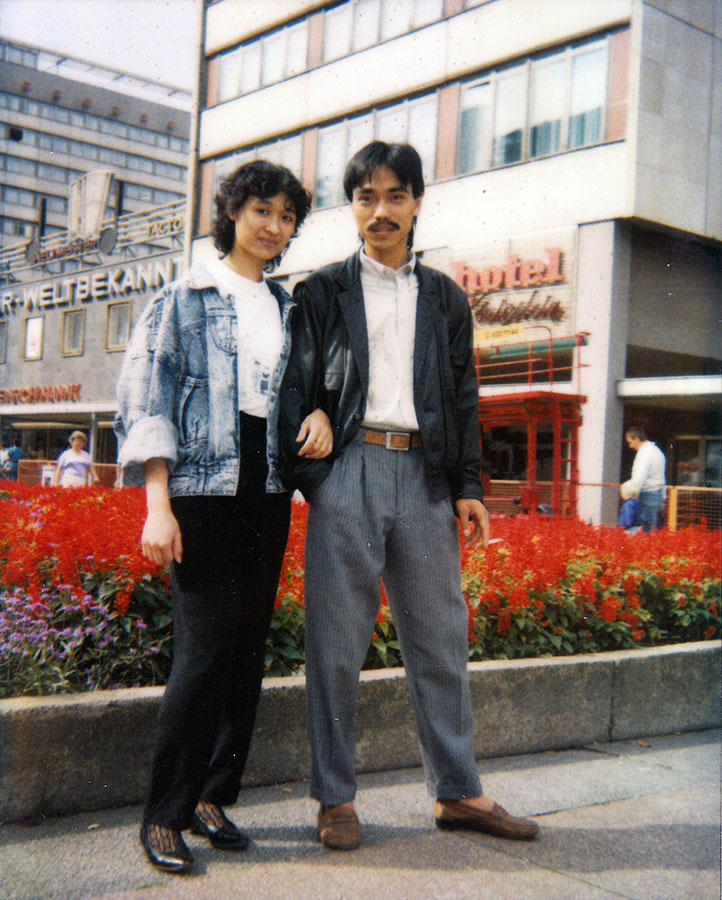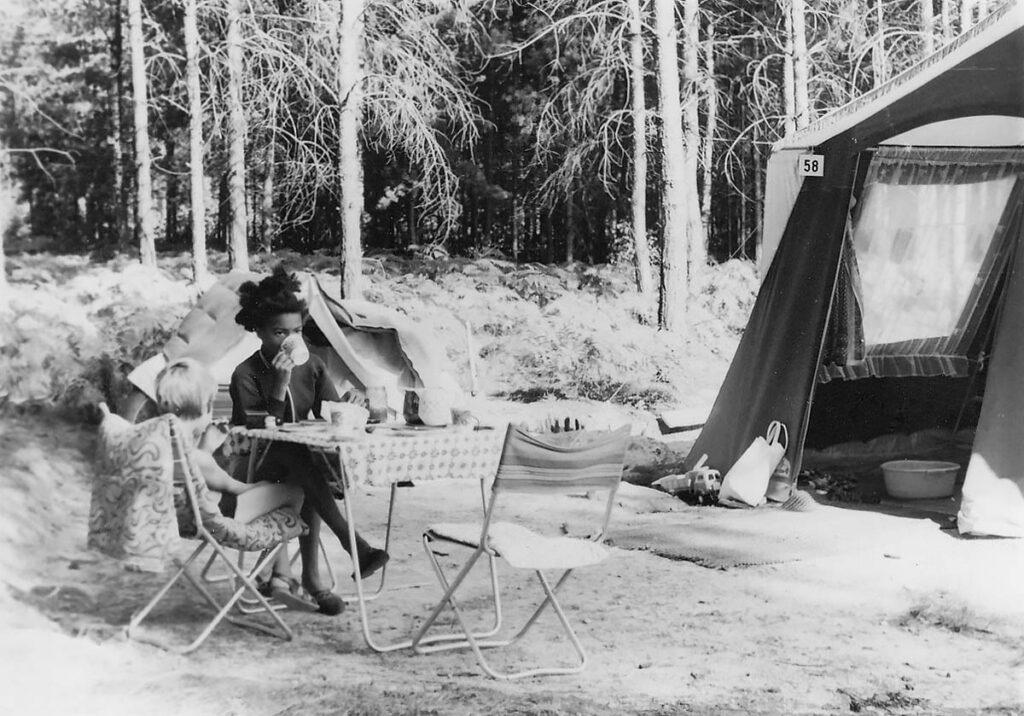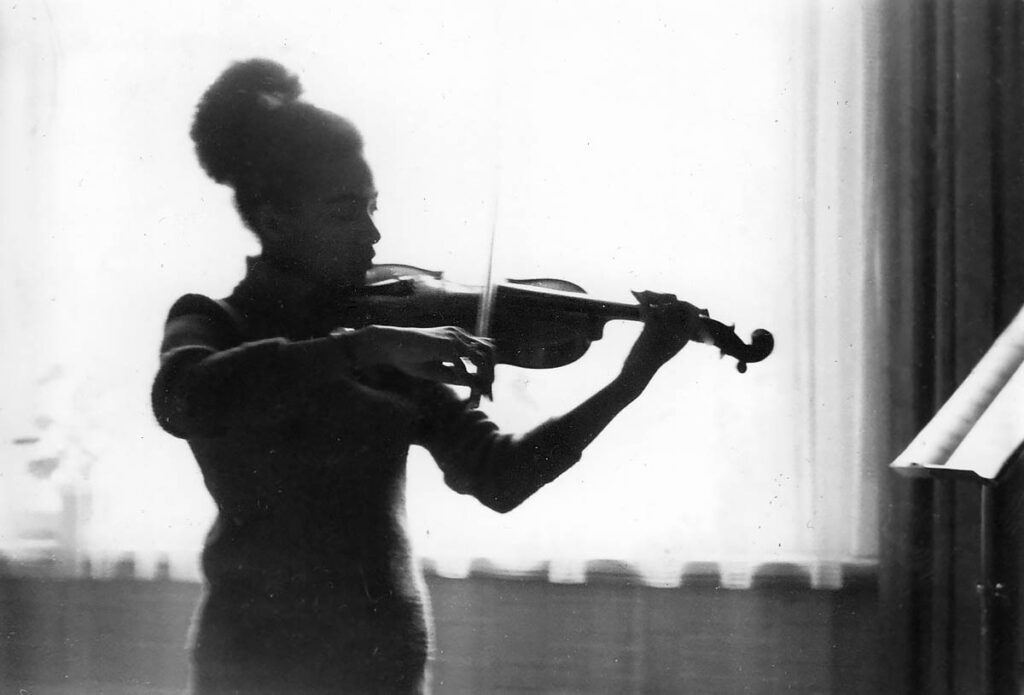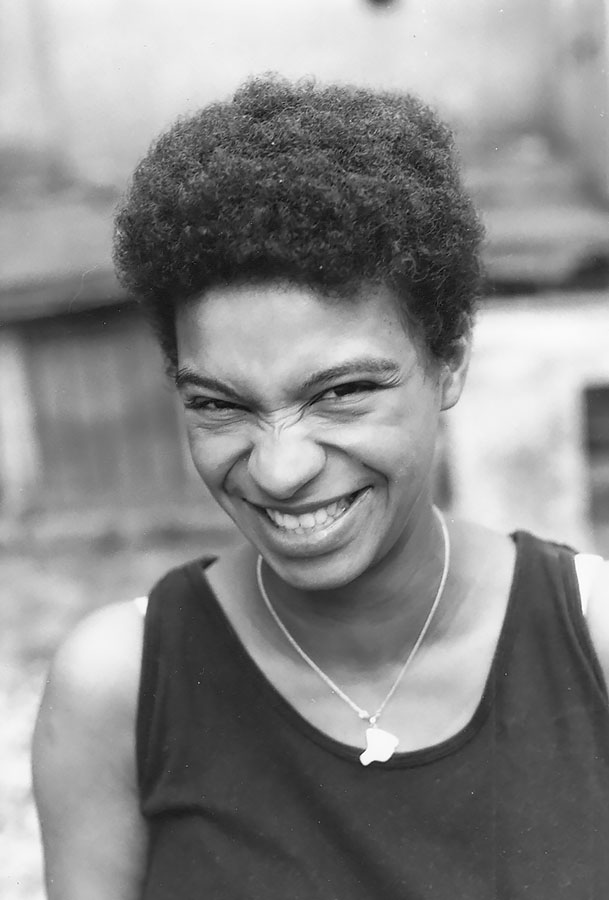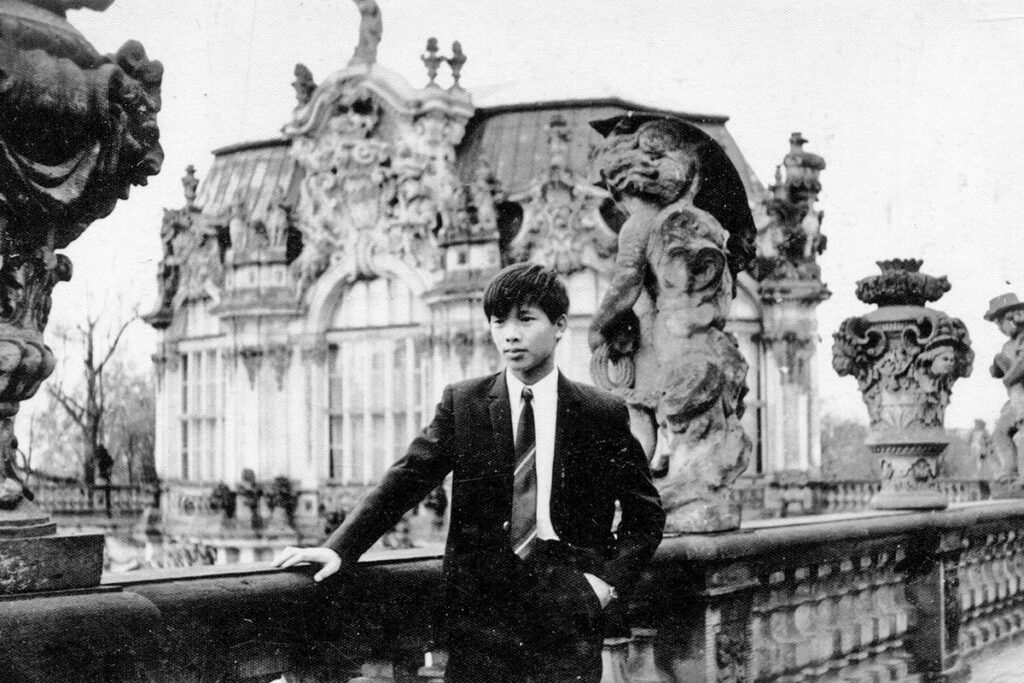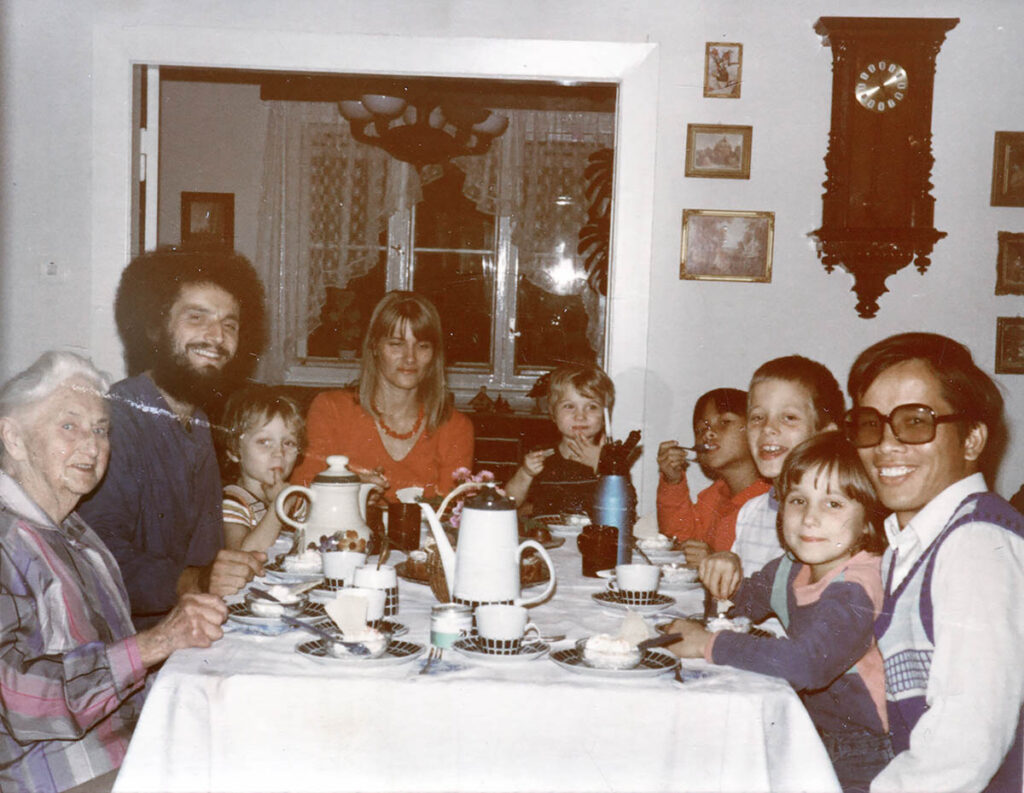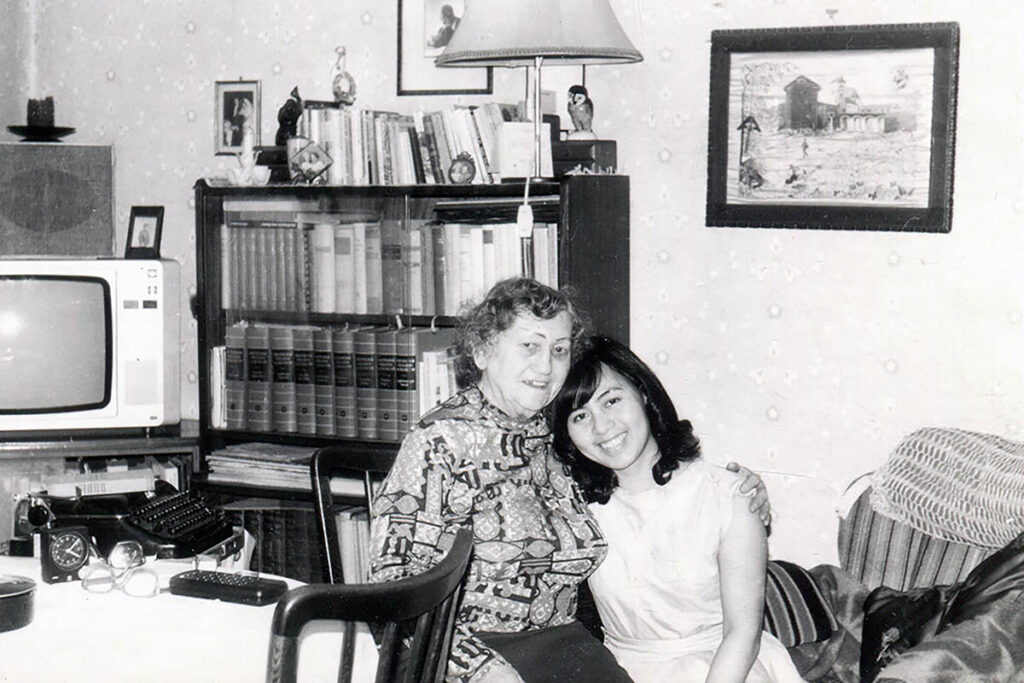Nguyen Thi Thu Thuy
In 1987, at the age of eighteen, Nguyễn Thị Thuị Thuỷ arrives in Plauen, Saxony to work in a cotton mill. Her parents ask a slightly older female friend and fellow traveler to keep an eye on Thuy. They are worried because Thuỷ is so young and cannot cook.
The youngest in the group
Nguyễn Thị Thu Thuỷ quickly settles in. Unlike many older colleagues she has not left behind a family of her own in Vietnam. Instead she enjoys the liberties that come along with being far away from home. She already met her friend Ha in Vietnam. In the group living together in the residential home she makes new friends. Together with Phương she secretly reads the letters of others. Thuỷ wants to go out and experience things.
In the textile industry
Soon after her arrival in autumn 1987, Thuỷ starts working at the VEB Vereinigte Baumwollspinnereien und Zwirnereien (Cotton Spinning and Twisting Mill) in Plauen. Given her relative tall size, she is employed in the yarn reel production. Her job is to lift down the finished yarn reels and put them into cotton boxes. One shift lasts eight hours. She does not consider her work particularly exhausting.
Many had already families of their own, which they had to leave behind. They were very homesick.
Nguyen Thu Thin Thuy, Berlin 2022
No market for kimonos
In Vietnam, Nguyễn Thị Thu Thuỷ is advised to bring kimonos to East Germany and sell them there. She carries along ten of them, but finds no buyers. Finally she has her picture taken wearing one. Everyone in her group has brought a suitcase of clothes from Vietnam. Soon Thuỷ and her Vietnamese colleagues start sewing clothes out of bed sheets, which they sell to Germans or send home together with sewing machines.
Friendship with colleagues
Nguyễn Thị Thu Thuỷ spends a lot of time with her best friend Phương as well as numerous Vietnamese colleagues. They go out together or invite friends from other plants to their residence. They also spend a lot of time sewing. To this day, many of the former contract workers still keep in touch, although they may live in different German cities. Or they visit each other while in Vietnam. The memory of their time together in the GDR is a bond between them.
Parties in the residential home
Many photos are taken at parties. The first Christmas party is organized by the company. There is a big celebration of Thuỷ’s twentieth birthday, and more parties for the birthdays of her colleagues. Some of the German colleagues also celebrate with them. In Plauen, Thuỷ meets her future husband Hung. Thuỷ, Hung and their colleagues enjoy celebrating the turn of the year 1988/89.
We always drank straight from the bottles.
Nguyen Thu Thin Thuy, Berlin 2022
Fall of the Wall and pregnancy
In 1989, Nguyễn Thị Thu Thuỷ is pregnant. She conceals this at first, hiding her growing belly. She wants to avoid being sent back to Vietnam early due to the pregnancy. Moreover in the spring of 1989, a new regulation comes into force, allowing pregnant Vietnamese women to have their children in the GDR, which was previously forbidden. Briefly the problem seems to be solved for Thuỷ. But with the fall of the Wall everything changes. The factories terminate the labor contracts of the contract workers prematurely. The political change in Germany signifies complete uncertainty for them: what happens to their contracts, their claim to a residential home, their right of residence? Along with their work they lose all security. They are supposed to return to Vietnam as soon as possible. Without any legal basis the first contract workers are sent back to their countries of origin in the winter of 1989.
Untimely return
Thuỷ and Hung get married. The situation in Germany is now very distressing. The Vietnamese contract workers are categorized into three groups: the first to return to Vietnam are those, who have children there. Next on the return list are those who have a spouse there. Those without children or a partner in Vietnam are allowed to stay longest in the GDR. A basic insecurity that the Vietnamese contract workers share with their colleagues from other countries. Many of whom are also prematurely deported in the winter of 1989/90. Thuỷ and the remaining Vietnamese in Plauen join forces with contract workers from Mozambique. Repeatedly Thuỷ has to accompany friends returning to Vietnam to the airport. Thuỷ manages to stay: with Hung and her child she moves to Frankfurt an der Oder in 1991.
In 1990 Nguyễn Thị Thu Thuỷ says goodbye to a friend returning to Vietnam at Berlin’s Schönefeld Airport.
Today Nguyễn Thu Thuỷ lives in Berlin.
Credits:
Nguyễn Phương Thanh conducted the interview in Berlin in 2021.
Text: Isabel Enzenbach
Research and research protocol photos: Nguyễn Phương Thanh
